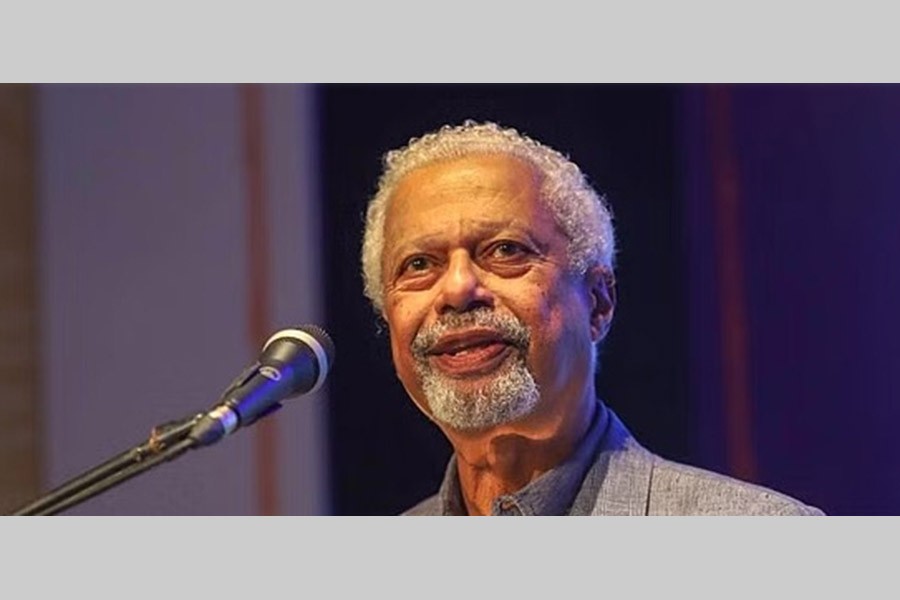The work of Abdulrazak Gurnah, the British author who was born in Zanzibar and won the 2021 Nobel Prize for Literature, often deals with the lives of ordinary people struggling with the realities of colonialism, immigration and race.
“I am not interested in the lives of people who occupy the central stage and are written about in newspapers or something because they are already there,” said Gurnah during a session of the Dhaka Lit Fest, titled “A World without a Centre”, on Saturday.
“I think I’m so much more interested in the complications of ordinary life because that’s what most of us live and that’s where all the kinds of dilemmas and difficulties of being human play out, not on the big stage, not in the newspapers.”
The reason his books focus on these people is that he is interested in small lives and not due to an unprecedented commitment, he said.
The primary impulse is not to speak for anybody but to speak as I see it and hope that this will also have an echo for others, have meaning for others, according to bdnews24.com.
“I think that the places and people I write about are interesting to me because I’m familiar [with them] and it’s what I know about. I don’t rub shoulders with heroes, but I do rub shoulders with people going about their lives and coping.”
Through novels such as “Paradise”, “By the Sea”, and “Desertion”, the writer focuses on ordinary people and how they go about their lives.
“It’s not a great stress,” he said. “In fact, it would be bigger stress for me to write about heroes than to write about ordinary people. Ultimately, it’s a desire to say – ‘let’s not neglect these small lives’.”
The writer says he admires the energy of these people and the way that all humans hope.
“There is a resourcefulness with which they cope with what they encountered in life. I think it’s one of the few things I can admire about human beings.”
The admirable thing is that people engage and cope with the traumas they encountered, he said.
Gurnah says he is also clear about why he is writing and whom he represents through his work.
“I know who I am speaking for - I am speaking for me, so that’s straightforward. I don’t have very much confusion about what the point of writing is for me - I express what I see and what happened as a result of that. I don’t say I live in a bubble all on my own.”
“But what I express is what I know, what I see, these are my views.”
Despite his interest in bringing ordinary lives to the fore, the author also says speaking on behalf of them is not his main concern.
“The primary impulse is not to speak for anybody but to speak as I see it and hope that this will also have an echo for others, have meaning for others.”
“What I suppose I would wish is that somebody reading this would say exactly, that’s exactly how I see few things, or possibly say I thought of that, that’s interesting, perhaps just to have some recognition – to say yup, I can see this.”


